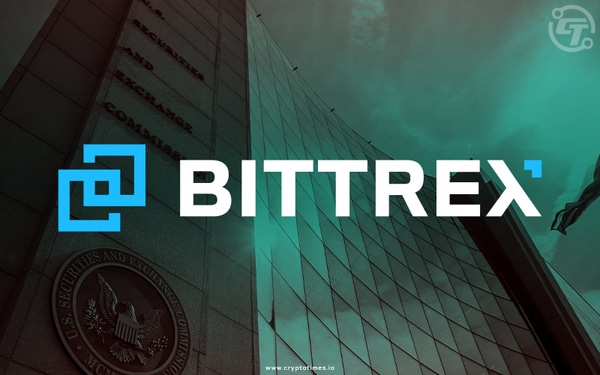Cryptocurrency exchange Bittrex has taken a bold stance in its legal battle with the United States Securities and Exchange Commission (SEC) by submitting a motion to dismiss the lawsuit.
Bittrex’s argument challenges the SEC’s authority to regulate cryptocurrencies as securities without explicit approval from Congress. This move aligns with the strategy employed by Coinbase, as Bittrex aims to leverage the strong legal framework established by its larger counterpart to form a unified defense against the SEC.
Bittrex’s legal team, much like Coinbase, questions the SEC’s allegations regarding the trading of investment contracts. While they acknowledge that the initial sale of certain crypto assets might be classified as securities contracts, they contend that such classification should not extend to assets traded on secondary markets.
According to their perspective, once an asset is actively traded on secondary markets, it should be categorized as a commodity or another form of digital asset, rather than a security.
Additionally, Bittrex argues that the SEC failed to sufficiently communicate that its actions were prohibited, echoing a defense strategy commonly employed by cryptocurrency defendants who challenge the SEC’s allegations.
The complaint against Bittrex highlights the allegation that the exchange facilitated the trading of digital assets that met the criteria outlined in U.S. federal securities laws without obtaining the required SEC registration as an exchange. Furthermore, the SEC charged Bittrex Global, the foreign affiliate of Bittrex, with failing to register as a national securities exchange.
By submitting this motion to dismiss, Bittrex aims to establish a more defined regulatory framework that accommodates digital assets. The outcome of this legal dispute could have significant implications for the regulation of cryptocurrencies and the broader cryptocurrency industry as a whole.
Also Read: Bittrex U.S. Enables Withdrawals as Bankruptcy Process
Both Bittrex and Coinbase’s unified defense strategy suggests a growing determination within the cryptocurrency community to challenge the SEC’s interpretation of existing securities regulations and seek clarity in the evolving landscape of digital assets.






